|
Books Should Be Free Loyal Books Free Public Domain Audiobooks & eBook Downloads |
|
|
Books Should Be Free Loyal Books Free Public Domain Audiobooks & eBook Downloads |
|
Fiction |
|---|
|
Book type:
Sort by:
View by:
|
By: Rosanna Eleanor Leprohon (1829-1879) | |
|---|---|
 Afternoon in July
Afternoon in July
LibriVox volunteers bring you 14 recordings of An Afternoon in July by Rosanna Eleanor Leprohon. This was the Fortnightly Poetry project for July 7, 2013.Rosanna Eleanor Leprohon, born Rosanna Eleanor Mullins, was a Canadian writer and poet. She was "one of the first English-Canadian writers to depict French Canada in a way that earned the praise of, and resulted in her novels being read by, both anglophone and francophone Canadians."Leprohon's novels were popular in both English and French Canada in the late 19th-century, and were still being reprinted in French in the mid-1920s... | |
By: Jessie Fothergill (1851-1891) | |
|---|---|
 The First Violin
The First Violin
May Wedderburn is a quiet provincial girl, living in small and seemingly boring Skernford. Underneath the dull exterior, there is mystery, suspicion and fear in this little town, surrounding the austere local wealthy landowner who is very interested in marrying poor May. It looks as though she will have to marry him whether she likes it or not until an unsuspected alliance is formed between her and a respected old lady. They both escape to Germany where music and excitement await them. | |
By: Lenore Elizabeth Mulets (1873-?) | |
|---|---|
 Stories of Birds
Stories of Birds
This volume contains stories, poems, myths, and facts about lots of different birds, intended for teaching children. It is divided into nine parts, each covering a different type of bird. | |
By: Helen Nicolay (1866-1954) | |
|---|---|
 Boys' Life of Abraham Lincoln
Boys' Life of Abraham Lincoln
The Boys’ Life of Abraham Lincoln is a biography with many anecdotes that takes one deeper into the thoughts, personality, and beliefs of the man that was Lincoln. While the title indicates the book is about Lincoln’s life as a boy, the book is a full, if somewhat shortened biography. It is very well written and was a joy to record. One might ask, "Who was Helen Nicolay?" Her father, John George Nicolay, was Abraham Lincoln's private secretary and doubtless much of the material comes from his complete biography of Abraham Lincoln. ( | |
By: Christopher Morley (1890-1957) | |
|---|---|
 In the Sweet Dry and Dry
In the Sweet Dry and Dry
Written just before Prohibition to entail the possible troubles that might happen en route. Both sides of the argument, or battle as the case may be, strike out with various over-top methods like legislating most fruits and vegetables as unsafe or intoxicating large groups with breathable alcohol. | |
By: Barbara Hofland (1770-1844) | |
|---|---|
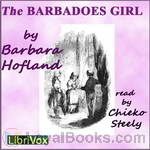 The Barbadoes Girl
The Barbadoes Girl
Matilda Sophia Hanson, whose father has recently died in their country of Barbadoes in the West Indies, must live for a time with family friends in England. The Harewood family is astonished at how spoiled, rude, and uneducated the child is. However, with seemingly endless patience and love, they help Matilda work to conquer her bad temper, and become a sensible, good, and well-informed young lady. This story reminds children and adults alike, though you have many battles with yourself, you must never relinquish hope and be assured you will find every victory easier than the last... | |
By: Rosa Campbell Praed (1852-1935) | |
|---|---|
 Lady Bridget in the Never-Never Land
Lady Bridget in the Never-Never Land
Following a failed love affair in England, Lady Bridget O'Hara accepts an invitation to travel to colonial Australia as companion to Lady Rosamund Tallant, the wife of the newly-appointed governor of Leichardt's Land. In Leichardt's Town, Lady Bridget, also known as Biddy, is reunited with her old friend and collaborator, Joan Gildea, special correspondent for The Imperialist newspaper. While visiting Joan, Biddy meets Colin McKeith, a roughly-hewn, Scottish-born pioneer, drover, miner, sometime-politician, and magistrate in the north-eastern colony... | |
By: Fanny Coe [editor] (1866-1956) | |
|---|---|
![The Book of Stories for the Storyteller by Fanny Coe [editor]](/image/layout2/The-Book-of-Stories-for-the-Storyteller.jpg) The Book of Stories for the Storyteller
The Book of Stories for the Storyteller
This is a delightful collection of 43 fairy tales (both old and new), folk lore, myths and real life stories by a variety of authors, brought together by writer Fanny E Coe. They are mostly short and are fun to listen to by children and adults and most teach valuable lessons about life. Some of the stories are: A Legend of the North Wind; How the Robin's Breast became Red; The Little Rabbits; St Christopher; The Necklace of Truth; A Night with Santa Claus; The Wolf-Mother of Saint Ailbe; Pocahontas and How Molly spent her Sixpence | |
By: Ethel Twycross Foster (1881-1963) | |
|---|---|
 Little Tales of the Desert
Little Tales of the Desert
A six year-old girl named Mary spends Christmas vacation with her parents in the Arizona desert of 1901 or thereabouts. | |
By: E.W. Howe (1853-1937) | |
|---|---|
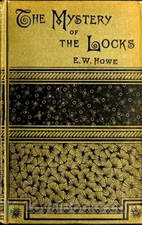 The Mystery of the Locks
The Mystery of the Locks
Davy's Bend was a dying, lonely, uncared for river town. So when a stranger showed up one day and bought the old unoccupied house called 'The Locks' one dreary day, the inhabitants of the town were naturally very curious about the stranger, and very curious about his reasons for buying the old house. The Locks had been known for years to display at nighttime a single light showing up in one room, and there was one room in the house which was strictly off-limits to anyone. What was the history behind... | |
By: Sarah J Richardson (1835-????) | |
|---|---|
 Life in the Grey Nunnery at Montreal
Life in the Grey Nunnery at Montreal
Life in the Grey Nunnery was first published in Boston, in 1857 by Edward P. Hood, who was credited as the book's editor. It is likely that this account is by Sarah J. Richardson "as told to" Edward Hood, though it may in fact be completely fictional. It is clearly an anti-Catholic book, an example of the genre of fiction referred to as "the convent horror story."As this summary shows, it is not known if this book is fictional or a true account.(Summary by project Gutenberg and Elaine Webb) | |
By: David Whitelaw | |
|---|---|
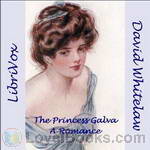 The Princess Galva
The Princess Galva
Edward Povey had been a correspondence clerk for twenty-two years when he was summarily dismissed. So how did he find himself mixed up with an orphan girl, who was really a princess, as she sought to reclaim her throne from the man who had killed her parents? Well, however it had happened, it was romantic. And after two decades in the basement office of a shipping company, he was ready for a bit of romance. (Introduction by MaryAnn) | |
By: H.H. Bashford (1880-1961) | |
|---|---|
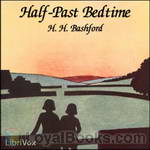 Half-Past Bedtime
Half-Past Bedtime
Ah, the wonderful adventures of Marian after she meets the strange Mr. Jugg. "And who are you, Mr Jugg?" she inquired. "I'm the King of the Bumpies," he replied. When Marian was puzzled there came a little straight line, exactly in the middle, between her two eyebrows. "What are bumpies?" she said. "My hat!" he gasped. "Haven't you ever heard of bumpies?" Marian shook her head. "Oh dear, oh dear!" he sighed. "Have you ever heard of angels?" "Well, of course," said Marian. "Everybody's heard of angels... | |
By: Jane Barlow (1857-1917) | |
|---|---|
 Strangers at Lisconnel
Strangers at Lisconnel
Strangers at Lisconnel is a sequel to Jane Barlow’s Irish Idylls. The locations and most of the characters are common to both. There is great humor and concomitantly a certain melancholy in most of these stories of the most rural of rural places in Ireland. Although of a higher social class than her characters, Our Jane seems to have a touch of softness in her heart for their utter simplicity, abject poverty and naiveté. From the following brief example of dialogue, can be seen that Ms Barlow could only have come to write these words after having heard them countless times in person: Mrs... | |
By: Lucy S. Furman (1869-1958) | |
|---|---|
 Mothering on Perilous
Mothering on Perilous
Cecelia Loring is alone in the world after the death of her mother and has come to the Kentucky mountains in search of work. Although very depressed from her loss she soon becomes caretaker of the garden at a school and not many days later finds herself quite busy as housemother to a group of energetic boys that keep running away from the school because of homesickness, especially Nucky, who seems to have the weight of the world on his shoulders, worrying about not being at home to help his brother Blant "keep lookout" for the Cheevers, who have been at war with the Marrses for years over a piece of land... | |
By: Morgan Scott | |
|---|---|
 Rival Pitchers of Oakdale
Rival Pitchers of Oakdale
Play Ball!!! It's the start of another baseball season at Oakdale Academy. But there is a rivalry brewing between the pitchers. One wants to be a starting pitcher, but he is inconsistent. Another, a new kid from Texas, has been mentored by last year's starter, and is proving to have talent. And don't forget that starting pitcher from last season, he wants to continue to take the rubber for the team. This should prove to be an exciting season for the boys! | |
By: Ellen Robena Field | |
|---|---|
 Buttercup Gold And Other Stories
Buttercup Gold And Other Stories
A charming collection of short stories and verses for young children. First published by the Bangor, Maine Kindergarten Association. | |
By: Austin Bishop | |
|---|---|
 Tom of the Raiders
Tom of the Raiders
Young Adult historical fiction of a young man joining the Union Army and taking part in the Great Locomotive Chase. | |
By: Kenneth McGaffrey (??-1938) | |
|---|---|
 The Sorrows of a Show Girl
The Sorrows of a Show Girl
Originally printed in The Morning Telegraph in New York, this is the story of Miss Sabrina, the show girl, and her ups and downs with the unpredictable theatrical industry and the Great White Way, the lights and glamour of Broadway. "In order to set myself right with both the public and the vast army of Sabrinas that add youth and beauty to our stage, and brilliancy and gaiety to our well known cafes, I wish to say that she is all that she should be...”- Kenneth McGaffrey | |
By: Sarah Stuart Robbins (1817-1910) | |
|---|---|
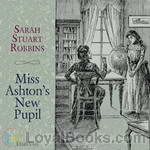 Miss Ashton's New Pupil
Miss Ashton's New Pupil
Marion Park, the daughter of missionaries, is sent to Miss Ashton's boarding school. There she meets with many young girls and together they learn not just lessons in German, Logic, Arithmetic, Latin and Rhetoric, but also life lessons of study habits, lady like manners, self control, thoughtfulness of others, truthfulness, and many other character traits. Join these girls of Montrose Academy as they plunge into the adventures of a secret society, fall into a scrape with the boys of Atherton Academy, and plan many Holiday festivities. | |
By: Samuel Merwin and Henry Kitchell Webster (1874-1936 and 1875-1932) | |
|---|---|
 The Short Line War
The Short Line War
"The Short Line War is a story that will appeal more particularly to the sterner sex, and we take it that the hyphenated name, Merwin-Webster, stands for two healthy-minded young men who have put their heads together and who have mapped out this story of a railroad war, in which politics form a considerable part. Jim Weeks is the central figure in the fight, and we like him so much better for knowing of the romance in his early life. He was a man 'without much instinct or imagination; he took everything seriously and literally, he could not understand a whim'--therefore a very foolish little woman came into his life only to leave it desolate... | |
By: John Bell Bouton | |
|---|---|
 Round the Block
Round the Block
In Round the Block (1864), John Bell Bouton, a newspaper editor who later became a travel writer, stirs together comedy and pathos to explore the schemes and dreams of the average and extraordinary people inhabiting and intermingling on a single New York City block. In the path of the novel's circumambulation lie mystery, romance, and a murder trial, as love-matches and fortunes are made and lost through invention, speculation, and flimflam - plenty of flimflam. This richly-charactered novel, told with Dickensian brio, offers a fascinating slice of life, vivid in detail, of the bustling big-city habits and mores of America shortly before the Civil War. (Introduction by Grant Hurlock) | |
By: Alfred Lawson (1869-1954) | |
|---|---|
 Born Again
Born Again
"I doubt that anyone who reads [Born Again] will ever forget it: it is quite singularly bad, with long undigestible rants against the evils of the world, an impossibly idealistic Utopian prescription for the said evils, and - as you will have gathered - a very silly plot." - oddbooks.co.ukAlfred Lawson was a veritable Renaissance man: a professional baseball player, a luminary in the field of aviation, an outspoken advocate of vegetarianism and economic reform, and the founder of a pseudo-scientific crackpot philosophy called Lawsonomy... | |
By: Unknown | |
|---|---|
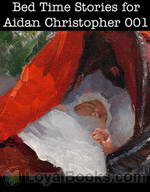 Bed Time Stories for Aidan Christopher
Bed Time Stories for Aidan Christopher
Bed Time Stories is a collection of 14 short stories especially for young children. | |
By: Various | |
|---|---|
 Historical Newspaper Articles
Historical Newspaper Articles
Public Domain newspaper articles in the US span a period of nearly two and a half centuries. Subjects, styles, period, publisher, and length vary greatly. This collection is a sampling of twenty such articles including one from the Journal de Paris. | |
 Love Letter Collection
Love Letter Collection
By conservative estimates, more than 6.8 million out of earth's population of 7 billion have access to cell phones. This has happened in just over 20 years. It's safe to assume that almost all these people would prefer to communicate via their phones rather than by snail-mail, post or courier. Which leads us to the question: “Does this mean the death of the love letter?” For those of us who still remember the joys of receiving and sending romantic epistles, couched in purple prose, expressing our deepest feelings, these little messages were the most delightful way of keeping in touch with those we loved... | |
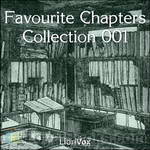 Favorite Chapters Collection
Favorite Chapters Collection
All of us have our own favorite parts of a book which we love to read and re-read. The nicest part of this is that each time you read, you find something new to savor and remember. For those of us who haven't read some of the classics, a teaser in the form of a single chapter would probably be intriguing enough to want us to take up the book and start reading. Favorite Chapters Collection 001 is one such delicious tasting table! Ten chapters from some of the best known classics in English are available here and they're sure to delight not only those who have read the entire book but also those who are yet to do so... | |
By: Unknown | |
|---|---|
 African-American Collection, July 2007
African-American Collection, July 2007
This collection recognizes Black History Month, February 2007. Two excellent resources for public domain African American writing are African American Writers (Bookshelf) and The Book of American Negro Poetry, edited by James Weldon Johnson. Johnson’s collection inspired the Harlem Renaissance generation to establish a firm African-American literary tradition in the United States. | |
By: Anonymous | |
|---|---|
 An Englishwoman's Love-Letters
An Englishwoman's Love-Letters
It need hardly be said that the woman by whom these letter were written had no thought that they would be read by anyone but the person to whom they were addressed. But a request, conveyed under circumstances which the writer herself would have regarded as all-commanding, urges that they should now be given to the world; and, so far as is possible with a due regard to the claims of privacy, what is here printed presents the letters as they were first written in their complete form and sequence. From book explaination | |
By: Joseph Hocking (1860-1937) | |
|---|---|
 Weapons of Mystery
Weapons of Mystery
Justin Blake receives an invitation from his old school-fellow Tom Temple to join him and his family for the Christmas holidays in Yorkshire. Having no other plans, he decides to go. Though he is normally much the opposite of what would be called a lady's man, he falls instantly in love with Miss Forrest, one of the guests, who had already shared his train compartment on the way. When he meets the mysterious Herod Voltaire and finds that he must protect the girl from him and his weapons of mystery, the adventure begins. | |
By: Unknown | |
|---|---|
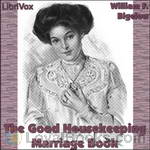 The Good Housekeeping Marriage Book
The Good Housekeeping Marriage Book
A collection of articles from Good Housekeeping magazine, The Good Housekeeping Marriage Book focuses on the subject of marriage. With instructions and advice from courtship to raising children, this collection aims to assist those with questions and concerns surrounding marriage and the ensuing relationship. Published in 1938. | |
By: Various | |
|---|---|
 U.S. Historical Documents
U.S. Historical Documents
The Articles of Confederation: On November 15th, 1777 The Articles of Confederation became the first constitution of the United States, though not yet ratified by the thirteen original colonies. Ratification of the Articles took place almost three and a half years later on March 1st, 1781. The purpose of the articles was to create a confederation of sovereign states with a weak central government; thus allowing state governments to wield most of the power. It wasn’t long before the need for a stronger federal government was realized which led to the Articles being replaced by the United States Constitution... | |